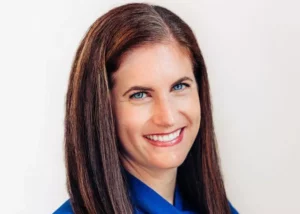If you’re thinking of sharing space in an office center or in another law firm, there are some key questions to ask before signing a lease.
For starters, find out how much time is left on the center’s lease. The last thing you want is to receive an unexpected notice that the building is being sold or vacated, which means you’re out too.
“If the co-working operator owns the building, ask them about future plans, what their building hold strategy is, and if the co-working operations has a lease with the building — even if both have the same owners,” according to Attorney at Work. “Understand if the operator is a local, regional or national operator. Regional operators usually have several centers, are privately owned, and generally go to extreme lengths to protect their reputation. Even if they do close a center, chances are they will handle it in a professional manner, providing as much notice to clients as possible to protect their reputation in the industry and geographic locations.”
Another important inquiry: what is the current occupancy of the center?
“Anything under 70 percent is a red flag,” says Ron Bockstahler for Attorney at Work. “The obvious exception is if the center opened less than a year ago and is in the early stages of leasing. To that point, a new center is generally a safe bet to remain open for the next one to two years, regardless of occupancy.”
Now more than ever, solo and small law firms need a distinctive and unique brand. Otherwise, they risk being swept away by the stormy seas of stiff competition, economic uncertainty and market disruption. Alta Pro is here to help. We created the 2023 Law Firm Branding Checklist to guide lawyers in solo and small firms through the step-by-step process of building a winning brand. The checklist and accompanying blogposts cover everything from choosing the right brand to marketing your brand effectively. Discover other ways Alta Pro Lawyers Risk Purchasing Group (RPG) can keep your practice safe and successful.
Risk Management Pointers: Shared Office Space
Don’t share advertising and marketing. Each firm should have its own marketing materials and messaging. Each lawyer should have separate business cards.
Don’t share a website. Each lawyer should have a separate website and URL. Using the same website increases the chance that a potential client will think you are a single firm.
Your engagement letters and fee agreements should make your separate status clear. All lawyers should use the same or substantially similar language in their agreements. If a lawyer won’t do this, don’t share an office.
Clarify referral and fee arrangements. If you have a client-referral or fee-sharing relationship with lawyers in your office, let clients know. Explain the relationship in writing. Spell out each lawyer’s responsibility for the case.
Don’t share an IT system. You are ethically required to protect client information and property. This includes digital data. Each individual lawyer should have their own systems for doing so.
Maintain boundaries. Lawyers should have separate file rooms and work areas. Client files should not be mingled in libraries, basements, file cabinets or closets.
Be careful about sharing employees. When two or more lawyers use the same employee, there is a danger that client confidences will be disclosed. In addition, the client may be confused as to which attorney is working on their case. Receptionists, office managers and assistants should only work on client matters after full disclosure to the client, and after appropriate conflict checks and waivers have been done.
Report problems. You have an affirmative duty to report ethics violations by other lawyers in your office – even if you’re not formally practicing with them. Failure to do so can get you in disciplinary trouble.
Enforce your office sharing guidelines. Designate at least one person in the office to manage office issues and shared resources, and to make sure the rules are followed.
Source: Legal Shared Office Space | Five Things to Look for (attorneyatwork.com)
Do you practice in Wisconsin, Texas, Minnesota, Ohio, Illinois, Indiana or Michigan? Is your professional liability coverage managed through Alta Pro? If so, you’re automatically a member of the Alta Pro Risk Purchasing Group (RPG), which offers a wealth of benefits for your practice: free, cutting-edge CLE webinars featuring top experts tackling timely topics; the Pro Practice Playbook; the Pro Practice Blog; Reminger’s ProLink risk management assistance; Reminger’s Claim Repair Hotline; discounts on CLIO practice management software; tax savings on health insurance; and access to the Risk Pro, who can help keep your firm safe and successful. Register here and start enjoying your Alta Pro RPG benefits.

















